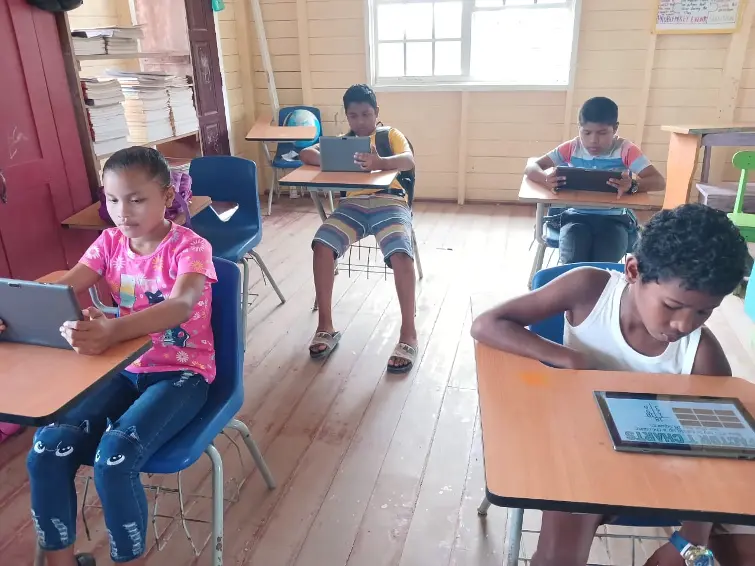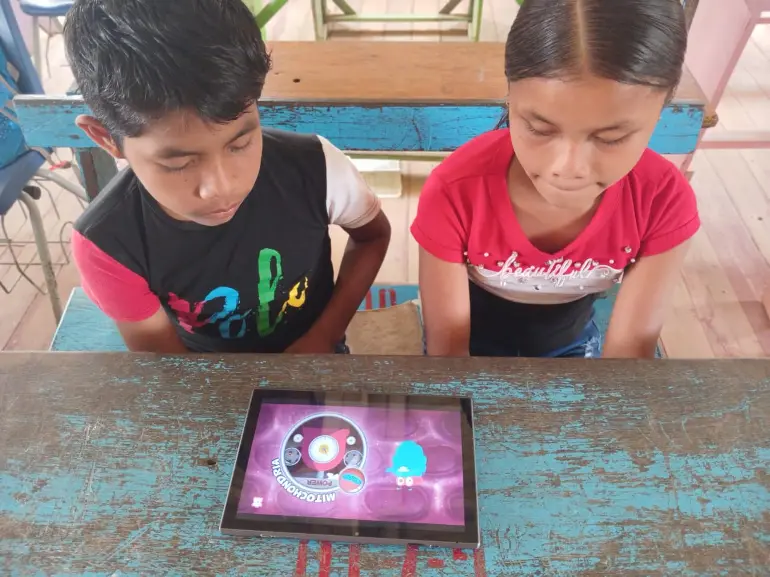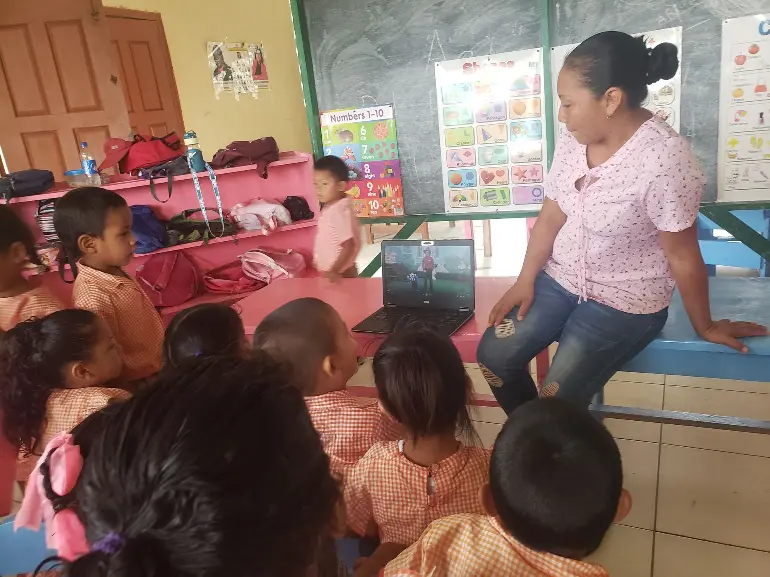In the remote village of Baramita, nestled in the Matarkai Sub District of Region 1, a transformative educational initiative is underway. Food For the Poor Guyana Inc. (FFTP Guyana) has launched a comprehensive STEM program aimed at equipping grade six students with critical skills for the future. Andrea Benjamin, CEO of FFTP Guyana, discusses the program's goals, benefits, and broader impact on the community.

Location and Target Group
The Baramita STEM Program specifically caters to the 20 grade six students of Baramita Primary School. This initiative represents a significant step towards bridging the educational divide in remote areas by introducing a curriculum centered around Science, Technology, Engineering, and Mathematics (STEM). The primary objective of the Baramita STEM Program is to foster critical thinking, problem-solving skills, and a deeper understanding of STEM fields among students. By integrating these subjects into the curriculum, the program aims to provide students with the tools and knowledge necessary to navigate an increasingly technological world.

Benefits of the Baramita STEM Program:
Enhanced Learning Process
The program has revolutionized the learning process for students through interactive and interdisciplinary approaches. "Interactive learning is key to engaging students and making complex concepts more understandable," explains Andrea Benjamin. This approach has promoted critical thinking and problem-solving skills, which are essential for academic success and future careers.
Hands-on Learning and Increased Engagement
Hands-on learning is a cornerstone of the STEM program, allowing students to apply theoretical knowledge to real-world situations. This method not only enhances understanding but also increases student engagement and motivation. "When students see the practical applications of what they are learning, their enthusiasm and interest in the subject matter grow," says Benjamin.
Collaboration and Teamwork
The program also emphasizes collaboration and teamwork, vital skills in both academic and professional settings. By working together on projects, students learn to communicate effectively, share ideas, and solve problems collectively. This collaborative environment helps build their confidence and prepares them for future endeavors.
Inspiring Future Careers
Exposure to STEM fields at an early age can inspire students to pursue further education and careers in these areas. The skills gained from STEM programs, such as coding, engineering principles, and digital literacy, are highly valuable in the modern job market. "We aim to open doors for these students, showing them the vast opportunities available in STEM careers," Benjamin notes.
Promoting Educational Equity
One of the critical aspects of the Baramita STEM Program is its role in promoting educational equity. By providing equal opportunities for children in remote areas, the program helps overcome educational disadvantages. This initiative aligns with the United Nations Sustainable Development Goal 4, which focuses on ensuring inclusive and equitable quality education and promoting lifelong learning opportunities for all.
Mitigating Learning Loss
The program has also been instrumental in mitigating some of the learning loss experienced during the COVID-19 pandemic. Teachers have reported noticeable improvements in students' academic performances, particularly in their grasp of STEM subjects. Recently, twenty students took the national grade six examination, and the community eagerly awaits their results.
Impact and Future Prospects
Food For the Poor Guyana Inc. initiatives in Hinterland communities demonstrate a profound commitment to improving education through technology. The Baramita STEM Program, along with the clean energy and technology integration projects in Kurupukari, highlights the immediate and long-term benefits of such initiatives.
Conclusion
The Baramita STEM Program stands as a testament to the transformative power of education and technology. By fostering critical skills and providing equal opportunities, Food For the Poor Guyana Inc. is paving the way for a brighter future for Hinterland communities. This initiative not only enhances educational outcomes but also promotes sustainable development, setting a model for other remote regions to follow. As we look to the future, it is clear that initiatives like the Baramita STEM Program are essential for preparing the next generation of innovators and leaders. Through the continued efforts of organizations like FFTP Guyana, remote communities can access the quality education and technological tools needed to thrive in the modern world.
